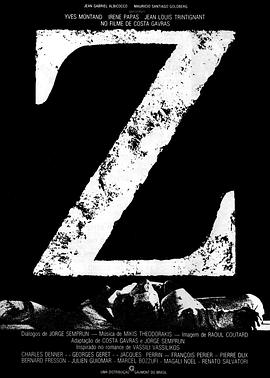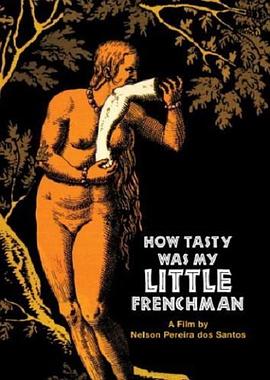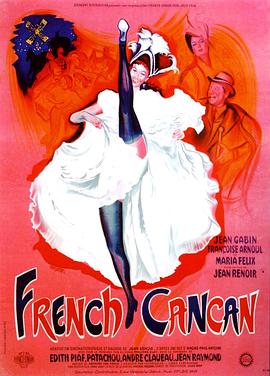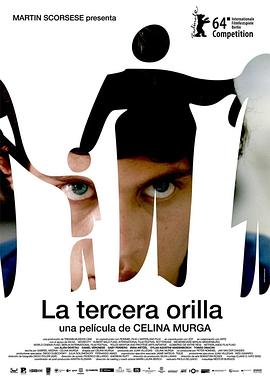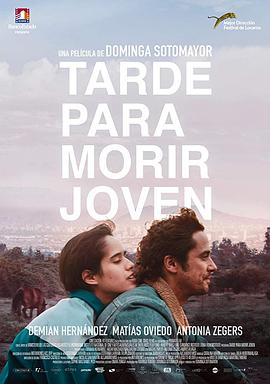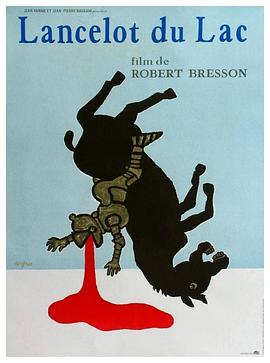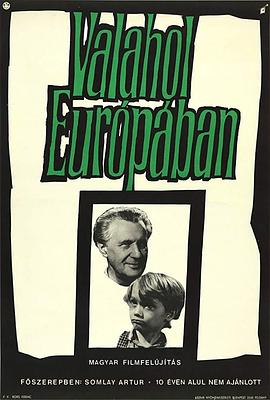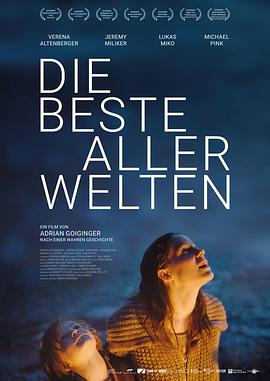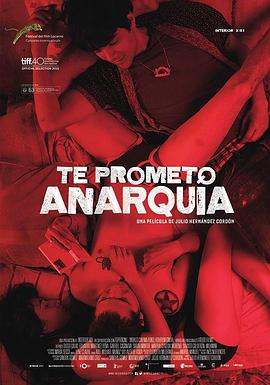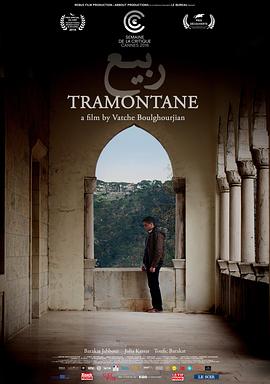-
备注:已完结
类型:剧情片
主演:Gabriel Araújo Gabriel Archanjo Ana
导演:内尔森·帕雷拉·德桑托斯
语言:其它
年代:未知
简介:昆汗比比(Cunhambebe)是印第安塔穆约(Tamoyo)部落武装反抗葡萄牙人的同盟领袖,这个部落现今分布于里约热内卢至圣保罗之间。根据死里逃生的Cunhambebe俘虏海员施塔登(Hans Staden)的回忆录描述,图皮南巴(Tupinambá)族人是食人族,凶残而且好斗。 1555年法国入侵里约热内卢,塔穆约部落与葡萄牙人联合抗击法国。 由于战争的持续,传教士José de Anchieta 和Manuel da Nóbrega发现了巴西东南面的一个小村皮拉蒂宁卡村(aldeia de Piratininga),此后此处逐渐发展成为了今天的圣保罗。因为Anchieta能够流利的使用图皮语,两人之后进入了Cunhambebe的部族中,并与其达成了一系列协议。1567年,在乌巴图巴(Ubatuba),他们与Cunhambebe签订了Iperoig条约,条约的签署使得巴西落入葡萄牙人的手中,而且在当地只允许使用葡萄牙语和信奉天主教。在16世纪以前,当地的图皮人一直都是奴隶。 这部电影讲述的便是1594年葡萄牙骑士Estácio de Sá(1520-1567) 试图驱逐法国殖民者,在此之际,由于塔穆约部落的仇敌图皮金人(Tupiniquins)站在葡萄牙人一方,他们感到背叛,于是开始支持法国人。 一位法国人Arduíno Colassanti被图皮南巴俘获。虽然他已自称是法国人,但审判仍判定他是来自葡萄牙,惩罚他为奴隶。Seboipepe的丈夫死于葡萄牙人之手,于是他们结婚,希望得到神灵的复仇。 随后,在一场战役中他用葡萄牙人留下的大炮击败了图皮金人,为了庆祝这一胜利,图皮南巴人决定把他吃掉……
-
备注:已完结
类型:剧情片
主演:让·迦本 弗朗索瓦·阿努尔 玛丽亚·费力克斯 Anna Amendol
导演:让·雷诺阿
语言:法语
年代:未知
简介:亨利(让·迦本 Jean Gabin 饰)经营着一家夜总会,进行一些下流艳俗的表演,擅长跳肚皮舞的劳拉(玛丽亚·费力克斯 María Félix 饰)是台柱一般的存在。不景气的经济和亨利的不善经营很快就让夜总会来到了濒临破产的边缘,就在这个节骨眼上,亨利认识了平凡的洗衣女工妮妮(弗朗索瓦·阿努尔 Françoise Arnoul 饰),在妮妮的身上,亨利看到了过人的天赋,并且开创了“康康舞”这一前所未有的舞蹈形式。凭借着康康舞,亨利的夜总会再度红火了起来,然而劳拉和妮妮之间日积月累的矛盾却在开业的那一天彻底爆发。之后,一位亲王爱上了妮妮,打算给夜总会投资,可眼红的劳拉却破坏了这桩生意。
-
备注:已完结
类型:剧情片
主演:Artúr Somlay Miklós Gábor Zsuzsa Bá
语言:其它
年代:未知
简介:Somewhere in the remote region, the war ends. In the midst of ruined cities and houses in the streets, in rural hamlets, everywhere where people still live, are children who have lost their homes and parents. Abandoned, hungry, and in rags, defenseless and humiliated, they wander through the world. Hunger drives them. Little streams of orphans merge into a river which rushes forward and submerges everything in its path. The children do not know any feeling; they know only the world of their enemies. They fight, steal, struggle for a mouthful of food, and violence is merely a means to get it. A gang led by Cahoun finds a refuge in an abandoned castle and encounters an old composer who has voluntarily retired into solitude from a world of hatred, treason, and crime. How can they find a common ground, how can they become mutual friends The castle becomes their hiding place but possibly it will also be their first home which they may organize and must defend. But even for this, the price will be very high. To this simple story, the journalist, writer, poet, scriptwriter, movie director, and film theoretician Béla Balázs applied many years of experience. He and the director Géza Radványi created a work which opened a new postwar chapter in Hungarian film. Surprisingly, this film has not lost any of its impact over the years, especially on a profound philosophical level. That is to say, it is not merely a movie about war; it is not important in what location and in what period of time it takes place. It is a story outside of time about the joyless fate of children who pay dearly for the cruel war games of adults. At the time it was premiered, the movie was enthusiastically received by the critics. The main roles were taken by streetwise boys of a children's group who created their roles improvisationally in close contact with a few professional actors, and in the children's acting their own fresh experience of war's turmoil appears to be reflected. At the same time, their performance fits admirably into the mosaic of a very complex movie language. Balázs's influence revealed itself, above all, in the introductory sequences an air raid on an amusement park, seen in a montage of dramatic situations evoking the last spasms of war, where, undoubtedly, we discern the influence of classical Soviet cinematography. Shooting, the boy's escape, the locomotive's wheels, the shadows of soldiers with submachine guns, the sound of a whistle—the images are linked together in abrupt sequences in which varying shots and expressive sharp sounds are emphasized. A perfectly planned screenplay avoided all elements of sentimentality, time-worn stereotypes of wronged children, romanticism and cheap simplification. The authors succeeded in bridging the perilous dramatic abyss of the metamorphosis of a children's community. Their telling of the story (the scene of pillaging, the assault on the castle, etc) independently introduced some neorealist elements which, at that time, were being propagated in Italy by De Sica, Rossellini, and other film artists. The rebukes of contemporary critics, who called attention to formalism for its own sake have been forgotten. The masterly art of cameraman Barnabás Hegyi gives vitality to the poetic images. His angle shots of the children, his composition of scenes in the castle interior, are a living document of the times, and underline the atmosphere and the characters of the protagonists. The success of the picture was also enhanced by the musical art of composer Dénes Buday who, in tense situations, inserted the theme of the Marseilaise into the movie's structure, as a motive of community unification, as an expression of friendship and the possibility of understanding. Valahol Europaban is the first significant postwar Hungarian film. It originated in a relaxed atmosphere, replete with joy and euphoria, and it includes these elements in order to demonstrate the strength of humanism, tolerance, and friendship. It represents a general condemnation of war anywhere in the world, in any form.
-
备注:已完结
类型:剧情片
主演:迭戈·卡尔瓦 Eduardo Eliseo Martinez Shva
导演:胡立欧·赫南德兹·柯登
语言:其它
年代:未知
简介:Best friends and lovers Miguel and Johnny have known each other since childhood. They spend their time skateboarding with their friends in throbbing Mexico City where they sell their own blood and get donors for the ER black market as a way to make money. But when an important transaction goes wrong, Miguel’s mother sends him out of the country. Away from Johnny, Miguel will find the path to his own destiny.
